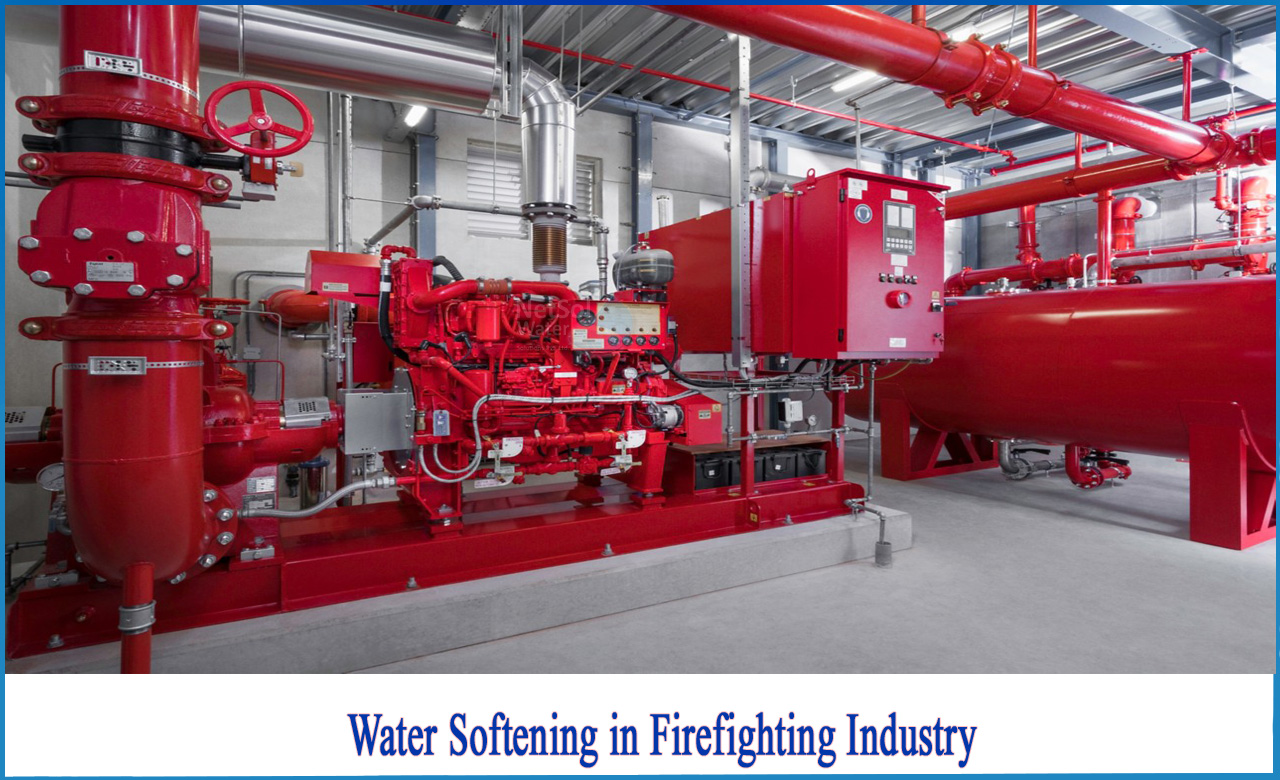As we know water is the least expensive commodity that is consumed by the public. There are certain methods to soften water. The question is what is water softening!
Water softening is the process of removing calcium,magnesium, and other metals from the hard water. The soft water thus obtained requires less amount of soap for the cleaning effort, as soap is not wasted bonding with calcium ions. For reducing build up in pipes, soft water plays a role as it extends the lifetime of plumbing.
How is water softening used for firefighting purposes?
After the fire has been extinguished, large quantities of water remains there. This water is known as firewater. This firewater has materials that are present inside the building and also has many dissolved as well as many particulate materials that are obtained from combustion processes.
This firewater can be polluting when the place being extinguished has polluting materials such as pesticides, organic and inorganic chemical reagents, and fertilizers. Sites like farms and the chemical industry, has special risks because of the types of materials present. Sites having large quantities of plastics can cause life threatening problems because of the taste and odor that is present in the firewater.
Letting out polluted firewater into a river or lake that supplies drinking water may affect the untreated supply not suitable for drinking or cooking.
Water softening is done by adding chemicals that creates insoluble precipitates or by ion exchange. Chemicals used for water softening for small scale purposes include ammonia, borax, calcium hydroxide or trisodium phosphate, mostly in conjunction with sodium carbonate.
What are the common methods used?
The method known as “The lime-soda” of water softening is followed by sedimentation and filtration for the removal of the precipitates whereas for the large scale purposes, water can be chemically softened by the addition of enough lime to precipitate the calcium as carbonate and the magnesium as hydroxide, whereas sodium carbonate is added to eliminate the calcium salts that are still present.
Ion exchange is a one of the most common industrial method of water softening. The process includes the passing of the water through columns of a natural or man made resin that trades sodium ions for calcium and magnesium ions. After sometime when the column has been in use, calcium and magnesium start to be seen in the water leaving the column. Now at this point of time,the column has to be regenerated by moving or passing slowly concentrated solution of common salt through the column. The sodium ions that are in excess displace the ions that cause the hardness, this all is done after the water is flushed, and the exchanger bed is now ready to be used again.
Initially, for this purpose, theexchangers usedwere natural alumina silicates, whereas later synthetic or artificial resins came to be used. Home water softeners work in the same way and havezeolite or another ion-exchange resin in a tank which isconnected into the water system.
We at Netsol Water, provide water softening plants of varying capacities and sizes for industrial, manufacturing, domestic and other processes that includes fire fighting services.
Netsol Water is Greater Noida-based leading water & wastewater treatment plant manufacturer. We are industry's most demanding company based on client review and work quality. We are known as best commercial RO plant manufacturers, industrial RO plant manufacturer, sewage treatment plant manufacturer, Water Softener Plant Manufacturers and effluent treatment plant manufacturers. Apart from this 24x7 customer support is our USP. Call on +91-9650608473, or write us at enquiry@netsolwater.com for any support, inquiry or product-purchase related query.



